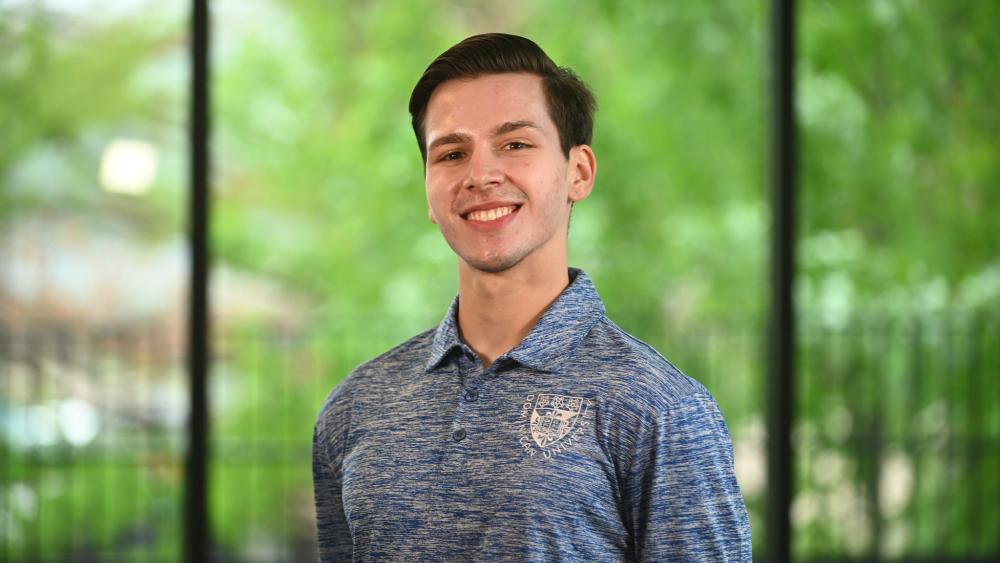Accounting Major Develops College Finance Workshop for Incoming Students

Pawel Kawa’s own experience of accumulating college loan debt inspired a project aimed at providing peers with basic college finance facts as they venture into higher education.
Kawa, an accounting major beginning his senior year at Dominican University this fall, developed a “financial literacy” workshop for new college students that was rolled out this summer during sessions of the student orientation program, SOAR.
The “Financial Support and Planning in College” workshop provides incoming freshmen with an overview of costs they will incur in tuition, fees (from school supplies to parking passes), meals, housing, textbooks and more at Dominican. It also includes definitions of common financial aid terms; information about different types of loans, like subsidized, unsubsidized and Parent PLUS; and how the university payment plan works.
Additionally, students learn about lower-cost book rentals and the $500 line of credit offered by the university bookstore that can be paid back at a later date.
A torch leader for SOAR, Kawa trained other torch leaders in presenting the 50-minute workshops.
“My hope is that students come out of it with the type of knowledge they didn’t have before that could benefit their financial decisions in the future,” he said.
The workshop is part of Kawa’s Schmitt Scholars project for the 2021-22 academic year. The Schmitt Scholars program provides scholarships for students with an aim of encouraging leadership and community-based learning opportunities. The completion of a special project is required of the scholars.
Kawa developed the key points of his workshop by receiving assistance and feedback from several Dominican faculty members, including Director of Advising Mark Carbonara; Chair of Economics, Business Law and Ethics Daniel Condon; Director of Civic Learning Paul Simpson; adjunct instructor and executive in residence at Brennan School of Business Ramiro Atristain-Carrion; and Executive Director of Career Programs and Employer Relations Jamie Shaw.
Carbonara notes that incoming students are responding to some of the points presented in the workshops at SOAR.
“These sessions have already shown a positive outcome as a higher percentage of students are accepting their loans each week,” he said.
After enrolling in a state university in 2015, Kawa stepped away from his education during his sophomore year — and found himself needing to pay back student loans for a degree he had not completed.
“I remember when I was 18 I just accepted my loans without a second thought,” he recalled. “Even though I was told I was going to have to pay them back, I thought, ‘That’s a tomorrow problem.’”
But tomorrow came quicker than expected and Kawa found half of his paycheck going to pay off his debt — and the interest that was accruing — for the unsubsidized loans he had received.
After taking a three-year break from education, Kawa enrolled at Dominican University to complete his undergraduate degree after discovering an interest in accounting while taking a course at Triton College. He is planning to graduate from Dominican next spring.
Kawa doesn’t dissuade students from taking out loans for college, but he says he wants them to be cognizant about what borrowing money means and how it must be paid back.
He also would like to see more states, including Illinois, require that courses in economics and business be taught at public high schools.
“I think the fact that this is not pushed for in a high school setting really prevents students from gaining important knowledge,” Kawa said.